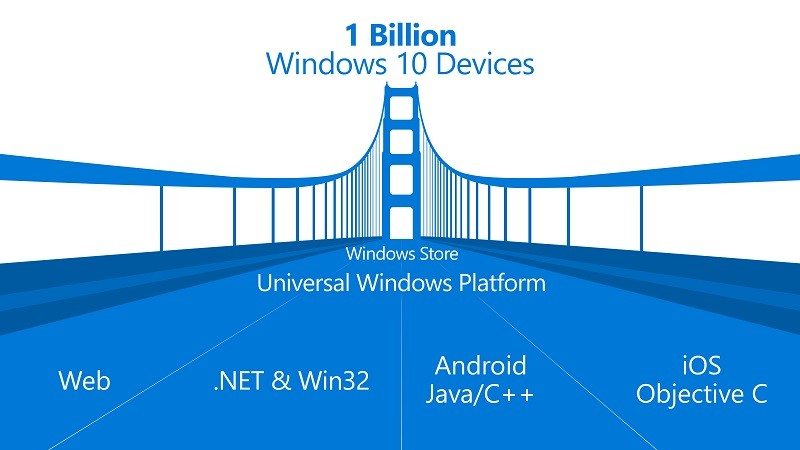Microsoft’s Universal Windows Platform is Struggling
John Williamson / 9 years ago

The Universal Windows Platform was created to offer a better synergy between mobile, Xbox and Windows 10 PCs. This makes sense in today’s market as consumers own multiple devices and wish to use the same applications. The company’s new strategy brought a number of core games you’d expect to remain Xbox exclusives to Windows 10 equipped PCs including Quantum Break and Forza Motorsport 6: Apex. This is fantastic news for PC gamers and demonstrates a major shift in Microsoft’s attitude towards the PC platform. Of course, they want to push their own store and refused to accept Valve’s fees on the Steam platform. As a result, the majority of Microsoft’s developed titles can only be enjoyed on Windows 10 systems through the Universal Windows Platform. Some critics have argued this is overly restrictive since many users want to stick with Windows 8.1 or Windows 7. On the other hand, many of these games opt for DirectX 12 which is only possible through Microsoft’s latest operating system.
Clearly, it was always going to be difficult to compete with Steam which has a very loyal and large consumer base. Not only that, many PC gamers are distrustful of Microsoft after the Games for Windows Live DRM fiasco. One interesting piece of data we can analyse is Rise of the Tomb Raider which launched on Steam and the Universal Windows Platform. According to Kotaku UK’s insider sources, the sales for Rise of the Tomb Raider on the Universal Windows Platform are very poor and accounted for a mere 2%:
“When we started the project we weren’t aware of Windows 10. We were going to ship on Xbox One initially and then we wanted to come out on PC at a later point, most likely though Steam. But we got burnt quite badly.”
“Without Steam, without other platforms, it was just painful. The Windows Store is a giant disaster. It’s on fire. 98% of PC copies of Rise of the Tomb Raider, a flagship Windows 10 game, were bought on Steam. The same is true for Minecraft. That hurt us, too. The store’s a mess; the number of people who couldn’t even install the game from the Microsoft store was… significant.”
“Let’s be honest – we make our projections based on a series of assumptions. There are supposed to be 2x as many Xboxes out there as there are right now. There are supposed to be 2x as many Windows 10 installs as there currently are. So now, when we look at how much money Legends could make in the free-to-play universe, you have to halve it. Because we can only reach half the audience that was projected.”
If true, this is disappointing but not unexpected and I forsee Microsoft struggling to gain a foothold in the PC gaming market. As a result, the company might fare better with games which can only be procured through their store. Saying that, encouraging people to accept another client will be frightfully difficult and I think Microsoft has left this decision way too late. Maybe, their profits would be greater by launching their games on Steam due to high volume sales even when Valve takes their fairly hefty cut. Please note, that the figures are not confirmed and stem from ex-Lionhead staff. Therefore, the picture might not be as bleak as it initially seems. Although, I’m personally not very optimistic about the kind of sales possible on a store with so few users.



















